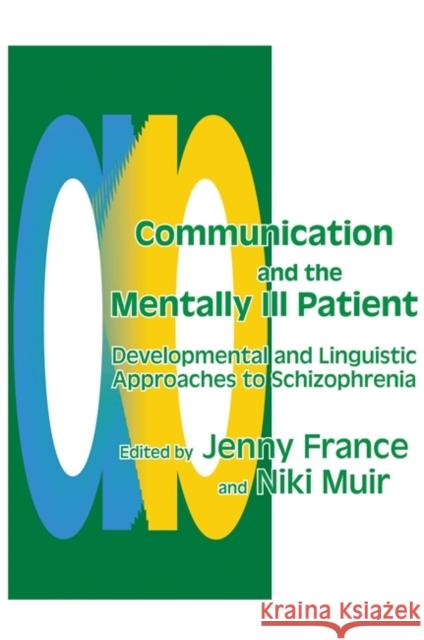Communication and the Mentally Ill Patient : Developmental and Linguistic Approaches to Schizophrenia » książka
Communication and the Mentally Ill Patient : Developmental and Linguistic Approaches to Schizophrenia
ISBN-13: 9781853024146 / Angielski / Miękka / 1996 / 195 str.
The editors must be congratulated for bringing together contributions from a wide range of interests. The book provides a rich array of new knowledge and perspectives with everything from a hard science approach to personal perspectives as exemplified by application of personal construct psychology. I can certainly recommend the book wholeheartedly to psychologists working with the seriously mentally ill and to those speech and language therapists employed in mental health services. This book represents another valuable perspective for understanding and treating mental health problems. I hope that the information collected in this work finds its way to those, like myself, who may be ignorant of the value of such an approach.' - Psychiatric Care This book should be read by every psychiatrist, psychologist and speech and language therapist, regardless of specialisation. Many chapters will also be of direct interest to other health care workers, particularly those involved in multi-disciplinary teams.' - Therapeutic Communities This is an extremely broad remit, yet it has been achieved successfully in a very readable fashion. I do indeed feel that this is a truly groundbreaking and exciting publication. The information it contains will benefit not only SLTs working in the field of mental health but also those in the mental health team who wish to understand our role and learn more about their clients' communication. It is an excellent publication which is well worth buying or borrowing.' - Bulletin The book does succeed in giving a perspective on the skills of speech and language therapists and the useful contribution they could make as members of a multidisciplinary team.' - Journal of the Royal Society of Medicine Communication and the Mentally Ill Patient is a groundbreaking work which examines issues of communication and speech in schizophrenic patients and constitutes the first collaboration between psychiatrists, linguists, psychologists and speech and language therapists. The contributors, both practitioners and academics, demonstrate the need for closer ties between the disciplines and the central role that language and communication play in the diagnosis and rehabilitation of the mentally ill. Communication and the Mentally Ill Patient will stimulate much discussion across the fields and is valuable reading for professionals, academics and students in these subject areas.











